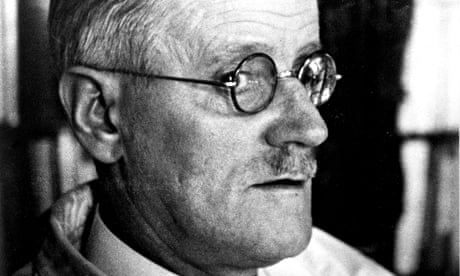Joyce really set my universe on its end. Reading Ulysses changed everything I thought about language, and everything I understood about what a book could do. I was on a train on the way to a boring temp job when I was about 25; I got on at Tottenham, north London, and opened the first page of Ulysses. When I got off at Liverpool Street in central London, I don't think it is an exaggeration to say the entire course of my life had changed. Although he is viewed as terribly serious and cerebral, so much of the pleasure of reading Joyce is the fun he has and the risks he takes with language; there is nothing quite so enjoyable as the much-maligned Joycean pun.
He also provides a great lesson for writers who don't at first succeed. It took nine years for Dubliners to be published, and as bad as my nine years were to get A Girl Is a Half-formed Thing published, he went through a lot worse: a print run was destroyed before it left the press; there were arguments about content and language; he was accused of letting down Ireland by writing about it in the way he did. He scared the hell out of a lot of very conservative publishers, but he stuck to his guns. He reinvented what Irishness means to the Irish writer. He was the inventor of the Irish European. He saw that there were parts of life that could not be described by conventional language, and that was the jumping off point for me. I think Joyce would struggle to be published today, and our literary and cultural life would be the poorer for his absence.
Joyce was a great inspiration to Edna O'Brien, and reading her when I was 14 was also a revelation for me. It was the first time I understood that there was a part of women's lives that had been absent in everything I had read. And she plumbed those lives so beautifully and elegantly.
Difficulty is subjective: the demands a writer makes on a reader can be perceived as a compliment, and Joyce certainly compliments his readers in what he asks of them.

Comments (…)
Sign in or create your Guardian account to join the discussion